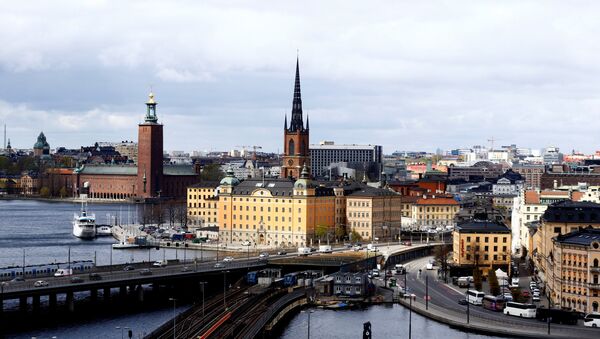Earlier this week, though, the Swedish Institute was revealed to have established a secret registry of Swedes and foreigners who are known to have certain opinions or have criticized Sweden's ways and policies. This register, which includes party leaders, politicians, journalists and even a foreign ambassador, is in effect a blacklist compiled in order to keep the selected people from interacting with Sweden's official account, the Swedish news outlet Nyheter Idag revealed. The idea of the blacklist is thus to prevent a "suspicious" person from expressing undesirable opinions on behalf of Sweden's official account.
"About 12,000 international and Swedish accounts which are dedicated to instigation, threats, xenophobia and hatred against migrants, women and LGBT people, as well as organizations that are committed to human rights. These accounts often have right-wing extremist and/or neo-Nazi orientation and advocate the use of violence," the Swedish Institute wrote on its website, motivating the controversial registry on its website.
However, this description does not seem to quite match some of the people featured in the blacklist, such as Israel's ambassador Isaac Bachman. Despite his criticism of Sweden's "anti-Israeli" policy, it would be an exaggeration to call him a "right-wing extremist," let alone "neo-Nazi." Earlier in May, Bachman claimed that Sweden lost its "moral compass" after "voting in favor of a UNESCO resolution that completely disavows Israel's sovereignty of Jerusalem."
Now, that #Israel 's MFA and ambassador are blocked — #Sweden is much safer in reading Iran and others, that were not blocked.@SweInstitute https://t.co/C87XzwTikb
— Isaac Bachman (@isaacbachman) May 16, 2017
Furthermore, the blacklist may be viewed as a way of targeting "thought crime," as the opinion registry specifically includes a number of opposition party Sweden Democrats members, such as party leader Jimmie Åkesson, parliamentary faction leader Mattias Karlsson and others. The Sweden Democrats, who advocate a sterner immigration policy, remain a pariah party in the Swedish political community, despite enjoying 19.3 percent of the vote and being the country's second-largest political force, according to a recent poll by TV-channel TV4 and the University of Gothenburg.
#Sverigedemokraterna #svpol #val2018 pic.twitter.com/dcBla3fb5t
— MX Cartoons (@MXCartoons) May 10, 2017
The Swedish Institute's blacklist also contains a number of high-profile journalists, such as Expressen's foreign correspondent Magda Gad, who is renowned for her on-the-spot coverage of the war in Syria and Iraq, with detailed reports of Daesh's abuse of the civilian population. In Sweden, Gad was recognized as Journalist of the Year 2015 and was awarded a European Press Prize in 2016.
Nästan i Saudiarabien! pic.twitter.com/kf3SESAsNx
— Magda Gad (@gad_media) May 8, 2017
Following the commotion the blacklist created in the Swedish social media (where it was dubbed "blockgate"), the Swedish Institute removed the blockage and apologized to those who were unfairly involved. Nevertheless, it claimed "net hate" to be a major challenge for the freedom of speech and opinion.
Have you seen what's happening in Sweden @realDonaldTrump? Sweden has got its #blockgate #TwitterGate https://t.co/MdQ5v3coqi
— Observer (@MEdnarsson) May 16, 2017
Never miss a story again — sign up to our Telegram channel and we'll keep you up to speed!



